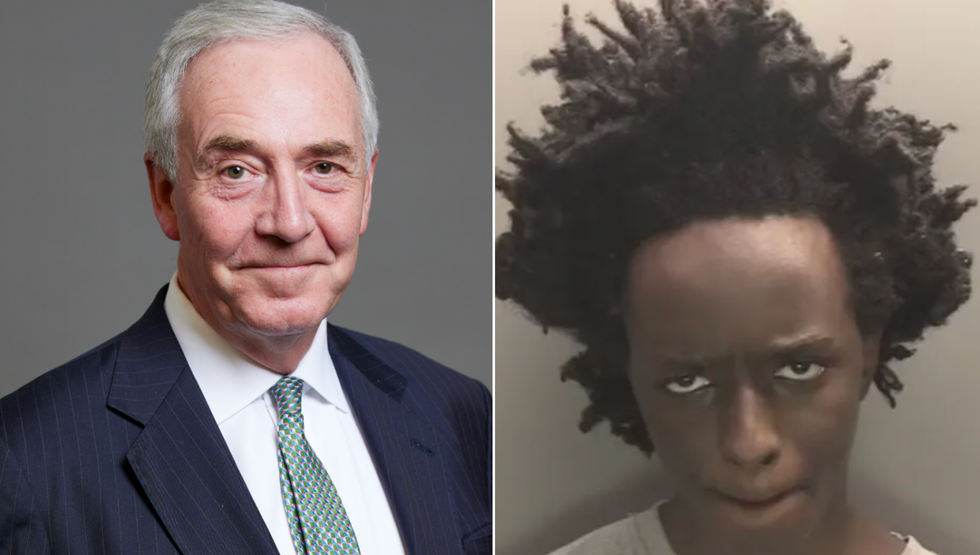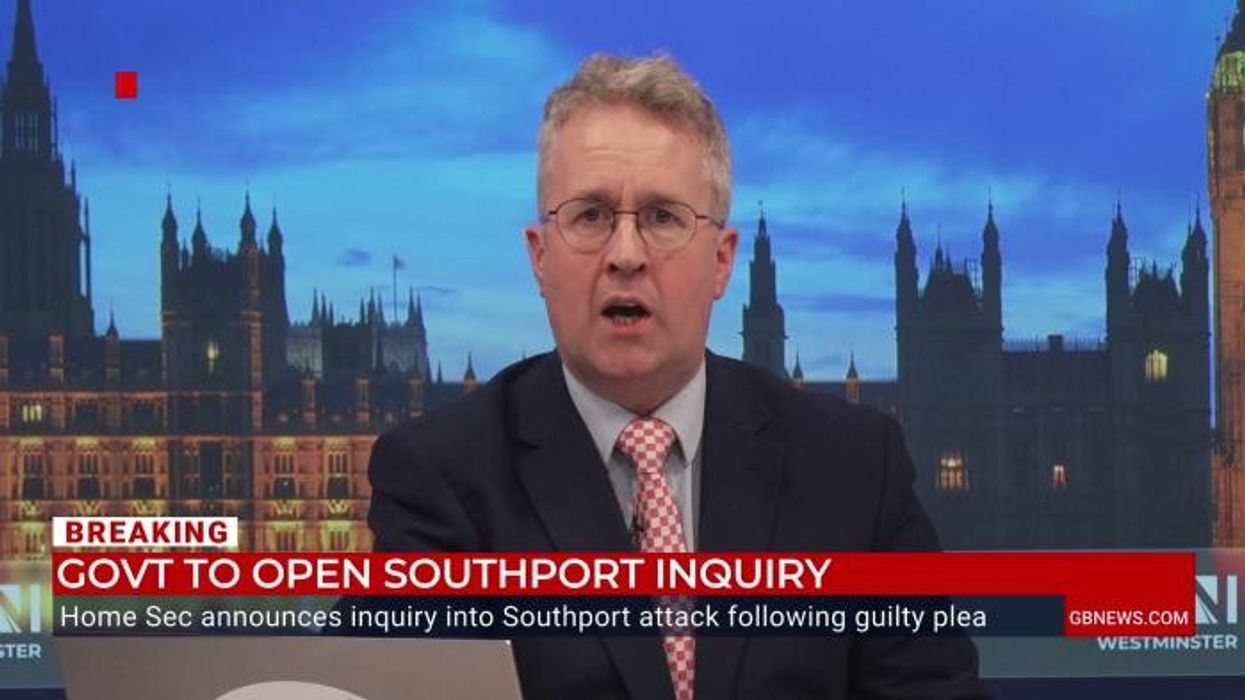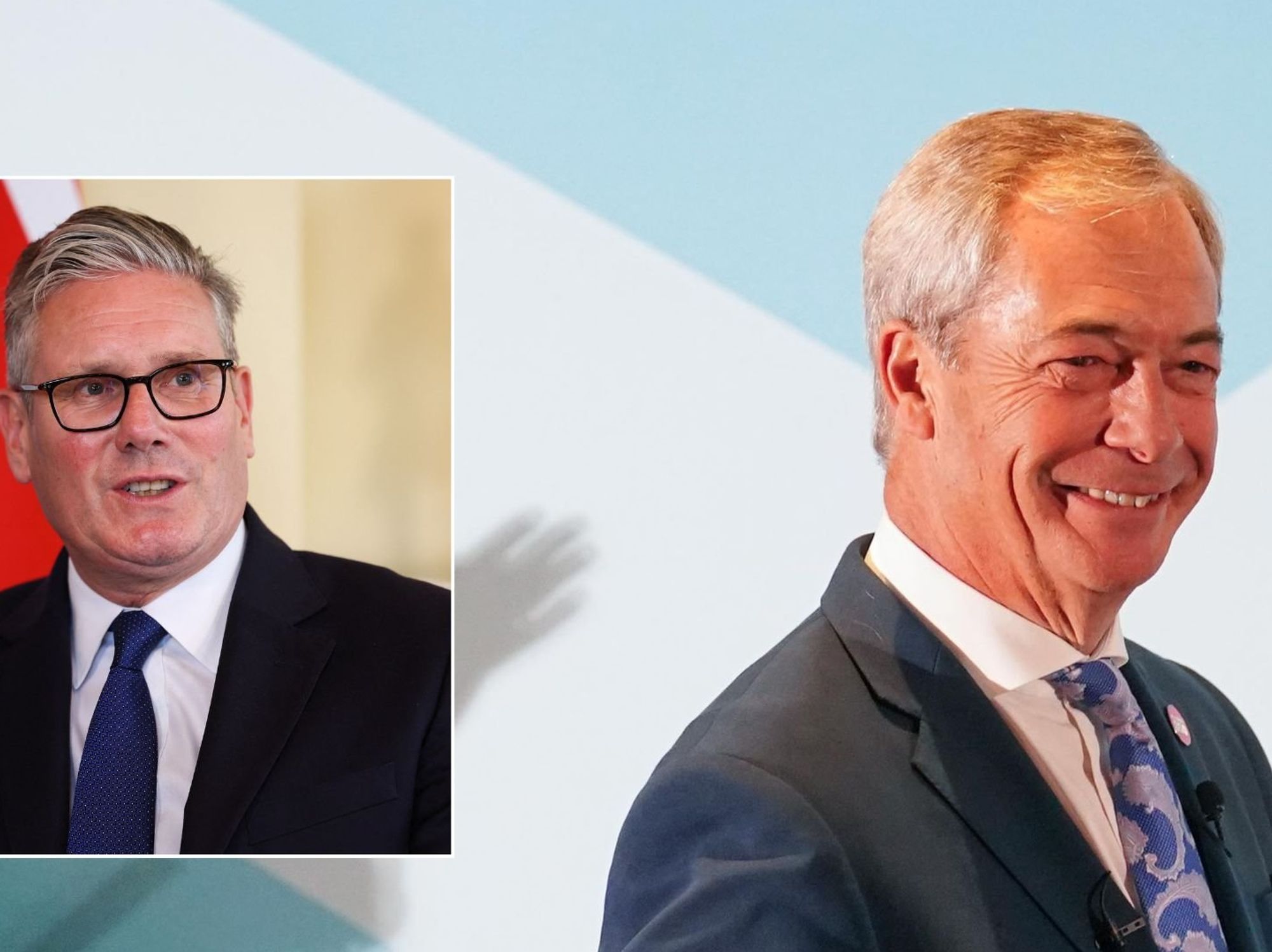Who is David Anderson? What we know about the KC reviewing 'Prevent' after Southport triple killer was missed

The Prime Minister announced the appointment a day after Axel Rudakubana, 18, pleaded guilty to murdering three young girls in a knife attack at a Taylor Swift-themed dance class in Southport
Don't Miss
Most Read
Latest
The Prime Minister has appointed Sir David Anderson KC as the new independent commissioner for Prevent, the UK's anti-extremism scheme.
The announcement came a day after Axel Rudakubana pleaded guilty to murdering three young girls in a knife attack at a Taylor Swift-themed dance class in Southport.
Shortly after his guilty plea, it emerged that the 18-year-old had also been referred to the Government anti-extremism scheme Prevent three times before he stabbed Alice da Silva Aguiar, nine, Bebe King, six, and Elsie Dot Stancombe, seven, along with 10 others on 29 July last year.
He was referred to 'Prevent' - the official national programme tasked with identifying those who appear to be adopting terrorist ideologies, who are then assessed and then given help to try and put out extremist ideas - due to concerns about his obsession with violence, though he was found not to be motivated by a terrorist ideology.
Rudakubana admitted to the production of a biological toxin, ricin, on or before July 29 and possession of information likely to be useful to a person committing or preparing to commit an act of terrorism.
The terrorism offence relates to a PDF file entitled Military Studies In The Jihad Against The Tyrants, The Al Qaeda Training Manual which he is said to have possessed between August 29, 2021 and July 30, 2024.

The Prime Minister has appointed Sir David Anderson KC as the new independent commissioner for Prevent after it emerged Axel Rudakubana had been referred to the Government anti-extremism scheme Prevent three times
|HouseofCommons/Merseyside Police/PA Wire
Questions have been raised over why the Crown Prosecution Service (CPS) did not classify the murder of three young girls as terrorism, even though Rudakubana was charged under the Terrorism Act 2000.
As we explain in a previous article, despite possessing materials linked to terrorism like an al-Qaida handbook and attempting to make ricin, authorities were unable to confirm a clear political, religious, racial, or ideological motive behind the crime.
While Rudakubana was charged under the Terrorism Act 2000 for possessing materials, the actual attack itself was not designated as a terrorist incident due to the lack of evidence showing the intent to influence government policy or intimidate the public for a cause.
The distinction between mass murder and terrorism often hinges on motivation; terrorism requires a specific ideology or political motivation, which was not sufficiently proven in Rudakubana's case, making it more aligned with mass murder.
Sensing that this explanation does not adequately address why the murders were not classified as terrorism, Starmer has vowed to change the laws to ensure that lone killers with “extreme individualised violence” are charged with terrorism.
"The meticulous plan to attack young children in a place of joy and safety. Violence clearly intended to terrorise. Then I understand why people wonder what the word ‘terrorism’ means. And so, if the law needs to change to recognise this new and dangerous threat, then we will change it – and quickly," Starmer said during a press conference in Southport on Monday.
The PM also says that there will be a public inquiry into the state's failure to prevent the murders committed by Rudakubana in Southport and that "we will review our entire counter-extremist system to make sure we have what we need to defeat it".
He's appointed Sir David Anderson KC as the new independent commissioner for Prevent to "hold this system to account", adding that he will "shine a light into its darkest corners, so the British people can have confidence that action will follow words".
Who is Sir David Anderson KC?
Sir David Anderson KC, now Lord Anderson of Ipswich, is a British barrister and life peer who has held prominent roles within the UK's legal and security sectors.
Lord Anderson has been practising law from Brick Court Chambers in London since 1988, having been called to the Bar in the same year.
He was appointed Queen's Counsel (QC) in 1999, now referred to as King's Counsel (KC) following the death of Queen Elizabeth II.
He has specialised in EU law, public law, and human rights, with notable appearances in over 150 cases in the Court of Justice of the European Union and more than 30 cases in the European Court of Human Rights.
LATEST MEMBERSHIP DEVELOPMENTS

The PM says that there will be a public inquiry into the state's failure to prevent the murders committed by Rudakubana in Southport
| PABetween 2011 and 2017, he served as the UK's Independent Reviewer of Terrorism Legislation, a role where he was responsible for reviewing the operation of terrorism-related laws and their impact on civil liberties.
His work in this position was highly influential, with his reports shaping legislation such as the Justice and Security Act 2013 and the Investigatory Powers Act 2016.
So influential in fact that he was recognised as the UK's "Legal Personality of the Year" in 2015 and listed among London's 1000 most influential people in 2017.
He was nominated for a life peerage by the House of Lords Appointments Commission in June 2018, becoming Baron Anderson of Ipswich, and sits as a cross-bench (non-party) peer.
In this role, he has contributed to legislative scrutiny and amendments, particularly in areas of national security, internet safety, surveillance, and EU-related matters.











